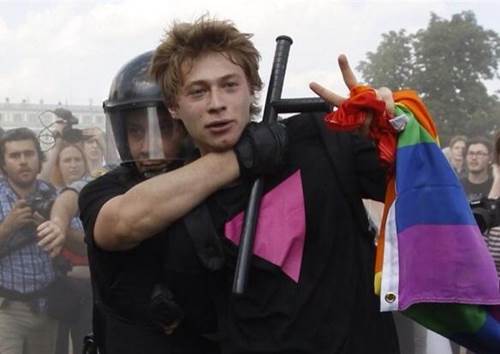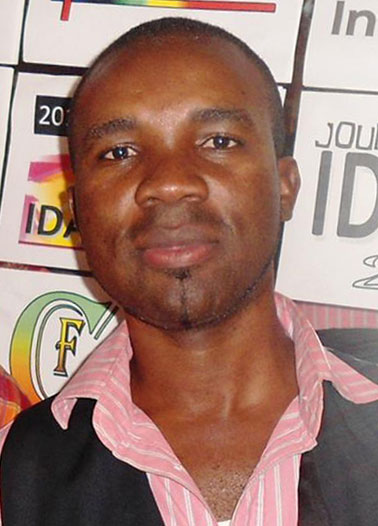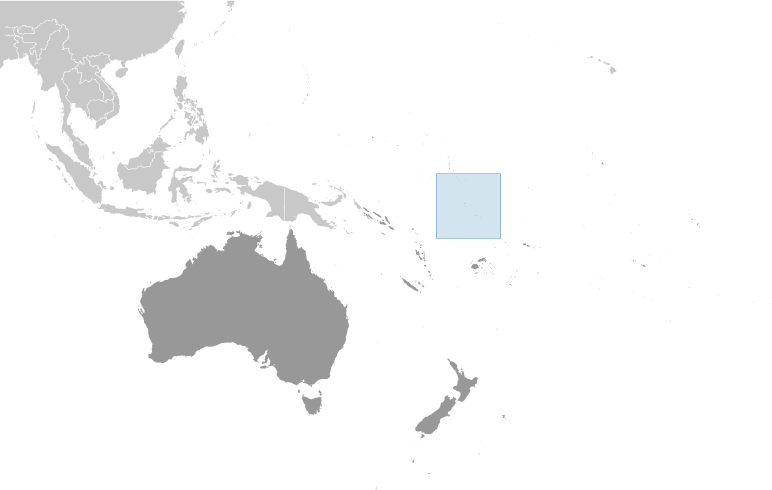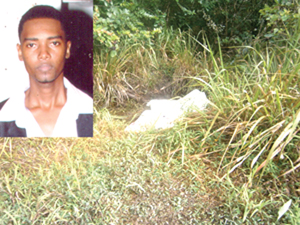Much talk, a little action on LGBT rights worldwide
Colin Stewart is a 45-year journalism veteran living in Southern…
Much discussion and a little action on LGBT rights occurred during last month’s meeting of the U.N. Human Rights Council in Geneva, Switzerland. These are excerpts from the report on the session by the advocacy group ARC International, particularly the sections related to countries with anti-gay laws.

Navi Pillay, United Nations High Commissioner for Human Rights, highlighted the alarming pattern of brutality and widespread intolerance against lesbian, gay, bisexual, and transgender (LGBT) people in all regions. In July, in Cape Town, together with Archbishop Desmond Tutu and South African Constitutional Court Justice Edwin Cameron, she helped launch Free & Equal, an unprecedented global public education campaign, to promote greater respect for the rights of LGBT people everywhere.
Pakistan, speaking on behalf of the Organization of Islamic Cooperation, said that the Organization of Islamic Cooperation had consistently raised its reservations about “controversial” notions that had not been universally agreed, such as lesbian, gay, bisexual and transgender rights, and therefore could not support any initiative by the High Commissioner in this respect.
Iran said it had strong reservations about any education campaign on lesbian, gay, bisexual and transgender people supported by the High Commissioner on the basis that it would contradict established human rights principles. …
Saudi Arabia said that the rights of lesbian, gay, bisexual and transgender people were against Islamic Shariah, which was applied in the country. …

Lithuania, on behalf of the European Union, encouraged the Russian Federation to ensure an enabling environment for the work of civil society organizations and human rights defenders and to take concrete steps to guarantee the freedoms of expression, assembly and association. It had serious concerns about the effect of the federal law against propaganda of non-traditional sexual relations to minors, reinforcing discrimination against LGBTI people. The EU called on the Russian Federation to uphold its commitments to protect the enjoyment of these rights by all, and to actively strive towards a more conducive attitude concerning the inclusion and tolerance of minorities in the Russian society. …
Russia, speaking in a right of reply, said the European Union was misinformed regarding their statements on Russian laws, and said it supposed that the States received their information from bloggers. There was no legal discrimination against sexual minorities in Russia: rather the law in question was a legitimate child protection measure. Before putting forward “fabricated allegations” about what was happening in Russia, the Czech Republic and Switzerland should look at the human rights situation in their own countries. Russia expressed concern, for example, about discrimination against Roma in the Czech Republic, overcrowding in Swiss prisons, and the effective prohibition on asylum seekers from appearing in some public places in Switzerland.
Consideration of UPR reports
This session, the Human Rights Council adopted the UPR [Universal Periodic Review of nations’ human rights records] reports of Turkmenistan, Burkina Faso, Cape Verde, Tuvalu, Colombia, Uzbekistan, Germany, Djibouti, Canada, Bangladesh, Azerbaijan, Russian Federation, Cameroon and Cuba. The UPR report adoption process affords an opportunity to commend those States that responded favourably to relevant recommendations, and to encourage States which have not to address these issues more positively in future.
Bangladesh rejected recommendations to repeal article 377 of the Criminal Code. Statements expressing concern about the rights of LGBT persons in Bangladesh were made by ILGA and Boys of Bangladesh, and ACPD and the SRI.

Cameroon accepted a recommendation to investigate police violence that took place on persons because of their actual or perceived sexual orientation. However it rejected several recommendations including to decriminalise consensual same sex relations between adults; to protect LGBTI people from violence; to take measures to eliminate discrimination based on SOGI, including through public awareness actions; to respect the right to privacy, and; to protect LGBT human rights defenders. During the report adoption five NGOs made statements on SOGI-related issues, and expressed concern at the murder of Eric Ohena Lembembe. The delegation stated that homosexuality was a sensitive issue in Cameroon and denied that Eric Ohena Lembembe was killed because of his sexual orientation. …
ILGA and Egale Canada made a statement during the adoption of the UPR report on Canada, drawing attention to the shortcomings of Canada’s asylum policy.
Colombia accepted a recommendation to consider the possibility of enhancing the necessary measures for the protection and integration of the LGBT population, and took note of a recommendation to legalise same-sex marriage and adoption. ACPD and the SRI made a statement drawing attention to legal restrictions on abortion and cases of sexual violence and murder against women, especially lesbians and trans women.
Cuba accepted recommendations to promote LGBT rights and to share experiences with other countries, and to strengthen publicity and awareness campaigns on the rights of LGBT people. It took note of a recommendation to expand opportunities for dialogue on SOGI.
Germany accepted recommendations to combat hate crimes based on SOGI including through implementing anti-discrimination laws and strengthening financial resources of investigation authorities and the autonomy of the Federal Agency against discrimination. In its response Germany noted that this included online hate crimes.
Russia rejected recommendations to repeal legislation that can be used to discriminate against LGBT persons, or to restrict the rights of LGBT persons. Russia noted in its response that “the law does not discriminate against LGBT persons”, but that the rights in question may be subject to restrictions “including for the protection of health and morals”.
Russia partially accepted recommendations to step up measures of protection against violence and discrimination on the grounds of sexual orientation by enacting laws that prohibit such discrimination, and take measures to ensure the effective exercise of the rights to peaceful association and assembly of the LGBT community. Russia noted in its response that “discrimination against LGBT persons is already prohibited under the law” and accordingly no further legislation is required.
Russia accepted recommendations to take specific measures to ensure effective investigation of acts of violence against LGBT persons and hold the perpetrators to account; adopt the necessary measures to eradicate the diffusion, through the media, and by public officials, of stereotypes that may promote discrimination against persons based on their sexual orientation; and to adopt legislation assuring that LGBT people can freely exercise their rights to freedom of expression and peaceful assembly. Russia noted in its response that “the law does not discriminate against LGBT persons”, that “all acts of violence, regardless of whether perpetrated on members of the LGBT community … are duly acted upon by the law enforcement agencies”, that “an offence committed on the grounds of hatred or enmity towards any social group is regarded as an aggravating circumstance” under the Criminal Code, and that the “dissemination of information that encourages any form of discrimination, including on the grounds of sexual orientation, is already prohibited”, although “freedom of the press is guaranteed and censorship is prohibited”.
Human Rights Watch, ACPD, ASTRA and the SRI, ILGA and the Russian LGBT Network, FIDH, Amnesty International, the ICJ, and Freedom House made statements on human rights in Russia around SOGI and related issues.
Turkmenistan rejected a recommendation to implement the Human Rights Committee recommendation to decriminalize sexual relations between consenting adults of the same sex

Tuvalu rejected a recommendation to repeal all provisions that criminalise consensual same-sex conduct and ensure that anti-discrimination laws cover sexual orientation.
Uzbekistan rejected recommendations to combat discrimination against LGBT persons, and to decriminalise consensual homosexual activity in compliance with obligations under the ICCPR. During the report adoption ILGA urged the government to take measures to address violence and discrimination against LGBT persons. …
Resolutions
… Although Russia rejected proposals to include reference to non-discrimination on the basis of grounds including sexual orientation and gender identity in the resolution on “sport and the Olympic ideal”, the resolution included a reference to “sport as a universal language that contributes to educating people on the values of respect, diversity, tolerance and fairness and as a means to combat all forms of discrimination and promote social inclusion for all.” Speaking in explanation of vote, the USA noted that the phrase “for all” must be understood to encompass “members of the many groups that benefit from sport, including those of differing sexual orientations and gender identities”. …
Side events

Side event by Brazil – positive developments and good practices
Brazil hosted a high-level side event on “Combating violence against LGBT individuals: human rights and good practices”, which was cosponsored by Argentina, Brazil, Costa Rica, France, Netherlands, Norway, United States and Uruguay. The event provided an opportunity to identify challenges faced on the basis of sexual orientation and gender identity, and measures that can be taken to address these challenges. …
Side event by ILGA and FIDH – challenges of human rights defenders
This panel event provided opportunity to hear some of the challenges facing SOGI human rights defenders, featuring defenders from Bangladesh, Cameroon, Kenya, Mexico, and Venezuela, and the first full screening at the UN of ARC International’s video documentary, “The Time Has Come” (http://vimeo.com/arcinternational/videos). …
For more information, download ARC International’s full “Report of the 24th session of the Human Rights Council” in PDF format.


